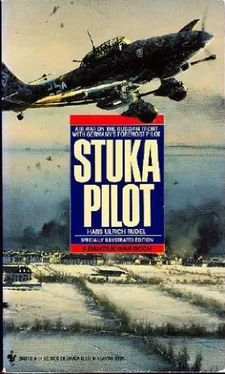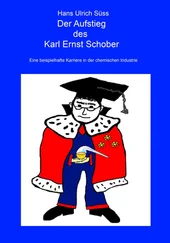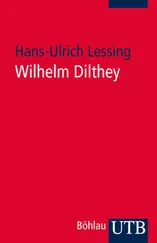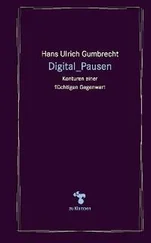STUKA PILOT
by Hans Ulrich Rudel
FOREWORD BY
GROUP CAPTAIN DOUGLAS BADER,
D.S.O., D.F.C.
INTRODUCTION BY JOHANNES AND
MARTHA RUDEL
TRANSLATED BY LYNTON HUDSON
BANTAM BOOKS
TORONTO • NEW YORK • LONDON • SYDNEY • AUCKLAND
We fly in low over the water from the south; it is dark and murky; I cannot distinguish anything more than 2000 to 2500 feet ahead. Now I see straight in the line of my flight a black moving mass: the road, tanks, vehicles, Russians. I at once yell: “Attack!” Already at almost point blank range the defense looses off a concentrated fire from in front of me, twin and quadruple flak, machine guns, revealing everything with a livid brightness in this foggy light. I am flying at 90 feet and have bumped right into the middle of this hornet’s nest. Shall I get out of it? I twist and turn in the craziest defensive maneuvers to avoid being hit; I shoot without taking aim… my head is as hot as the metal screaming past me. A few seconds later a tell-tale hammering. “Engine on fire!” Flames lick the cockpit. Our kite will be our crematorium. Can we bail out in time?
As so often occurs during a war, particularly in the Air Forces, you often hear the names of pilots on the opposite side. It is seldom that you meet them subsequently. At the end of this war some of us had the opportunity of meeting several well-known pilots of the German Air Force, who had hitherto been just names to us. Now, seven years later, some of the names escape me, but I well remember Galland, Rudel and a German night fighter pilot called Mayer. They visited the Central Fighter Establishment at Tangmere in June 1945 for a couple of days and some of their opposite numbers in the Royal Air Force were able to exchange views on air tactics and aircraft, always an absorbing topic amongst pilots. A coincidence which amused all of us, if I may be excused this anecdote, occurred when Mayer was talking to our well-known fighter pilot Brance Burbidge and discovered that Brance had shot him down over his own aerodrome one night as he was circling to land.
Having been a prisoner in Germany for much of the war I had heard of Hans Ulrich Rudel. His exploits on the Eastern Front with his dive bomber were from time to time given much publicity in the German press. It was therefore with great interest that I met him when he came over in June 1945. Not long before he arrived Rudel had lost one leg below the knee, as he describes in this book. At the time of this visit that well-known R.A.F. character, Dick Atcherley, was the Commandant at Tangmere. Others there were Frank Carey, Bob Tuck (who had been a prisoner-of-war in Germany with me), “Raz” Berry, Hawk Wells and Roland Beamont (now Chief Test Pilot for English Electric). We all felt that somehow we should try and get an artificial leg for Rudel. It was very sad that we were unable to do this because although a plaster cast and the requisite measurements were taken it was discovered that his amputation was too recent for an artificial leg to be made and fitted and we were reluctantly compelled to give up the idea.
We all read an autobiography written by someone we have met, if only for a short time, with more interest than that of a stranger. This book of Rudel’s is a firsthand account of his life in the German Air Force throughout the war, mainly in the East. I do not agree with a number of the conclusions he draws or with some of his thoughts. I was, after all, on the other side.
The book is not broad in its scope because it is confined to the activities of one man—and a brave one—waging a war in very singleminded fashion. It does however shed an interesting light on Rudel’s opposite numbers on the Eastern Front, the Russian Air Force pilots. This is perhaps the most revealing part of the whole book.
I am happy to write this short foreword to Rudel’s book, since although I only met him for a couple of days he is, by any standards, a gallant chap and I wish him luck.
DOUGLAS BADER.
It is not customary for a father and mother to write an introduction to their son’s book, but we believe it would be wrong to refuse the invitation even though at the present time it may appear imprudent to write a preface to a “war book.”
It has been said with competent authority: “…that Hans-Ulrich Rudel (as from the 1st January, 1945, Wing Commander of the Luftwaffe—at the age of 28 ½) has distinguished himself far beyond the measure of all officers and men, and his operational flights at focal points and in frontal sectors have been decisive for the general situation (wherefore he has been the first and only soldier to be awarded the highest decoration the Golden Oakleaves with Swords and Diamonds to the Knight’s Cross of the Iron Cross)…
“…Rudel is pre-eminently equipped to write his war experiences. The stupendous events of the war are still too close for it to be possible to present a comprehensive picture of them. It is therefore all the more important that those who did their duty at their post until the bitter end should record their experiences truthfully. It is only on the basis of a balanced objectivity and first hand individual experience that the Second World War will one day appear in full perspective. With 2,530 operational flights to his credit, Rudel—and this is admitted also by fair-minded enemies—is the foremost war pilot in the world…”
Throughout the long war he was hardly ever on leave; even after he was wounded he immediately hurried back to the front. At the beginning of April 1945 he lost his right leg (below the knee) in action. He refused to wait until he was fully convalescent, but despite an open wound forced himself to go on flying with an artificial limb. It was his creed that an officer has a vocation in which he does not belong to himself, but to his fatherland and to the subordinates committed to his charge, and that he must therefore—in war even more than in peace time—show an example to his men without regard for his own person or his life. On the other hand he did not mince his words to his superiors, but spoke his mind openly and honestly. By his forthrightness he gave his successes their real foundation, for only where mutual confidence prevails can superior and subordinate achieve the highest and the best.
The old soldierly virtues of loyalty and obedience determined his whole life. “Only he is lost who gives himself up for lost” is a maxim which our son made devotedly his own. And in obedience to it he now lives in the Argentine.
We—his parents and his two sisters, and countless others besides—have often feared and prayed for him, but we could always repeat as he did—with Eduard Mörike: “May all things, both the beginning and the end, be given into His hands!”
May his book bring words of cheer to his many friends and admirers, a message of inspiration to all readers from afar.
JOHANNES RUDEL, Retired Minister of Christ.
Sausenhofen bei Gunzenhausen/Mfr. September, 1950.
For the comfort of every mother of a boy I should like to mention that our Haas-Ulrich was a delicate and nervous child (he weighed five and three quarter pounds when he was born). Until his twelfth year I had to hold his hand during a thunderstorm. His older sister used to say: “Uli will never be any good in life, he is afraid of going into the cellar by himself.” It was just this ridicule that put Uli on his mettle and he began to toughen himself in every way and to devote himself to sport. But through this he got behindhand with his school work and his bad reports, which had to be initialed by his father, were kept back until the last day of the holidays. His form master whom I once asked: “How is he getting on at school?” gave me this answer: “He is a charming boy, but a shocking scholar.” Many tales could be repeated of his boyish pranks, but I am happy that he was granted a carefree youth.
Читать дальше












